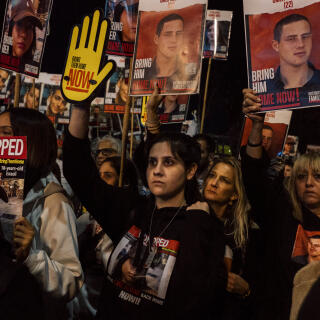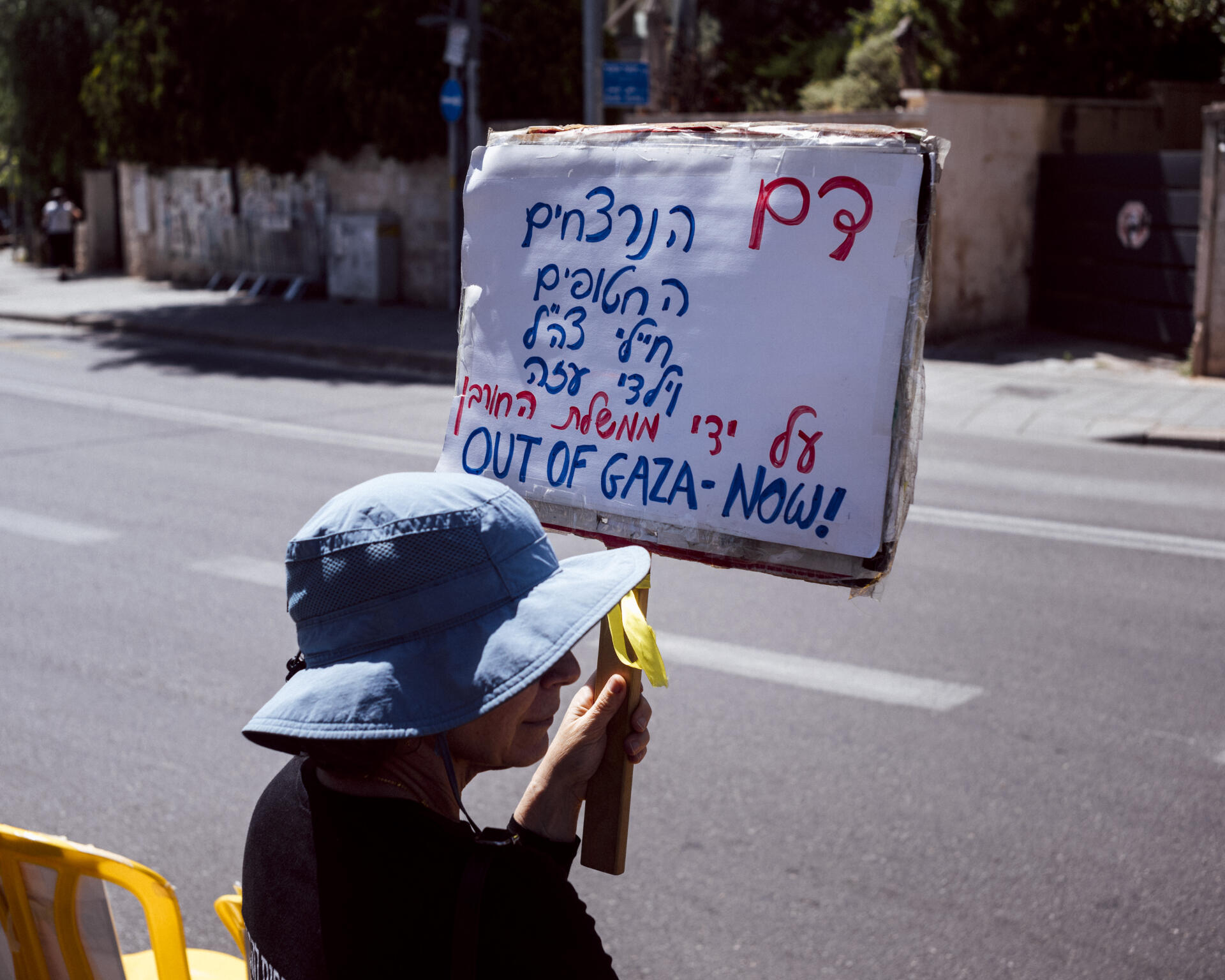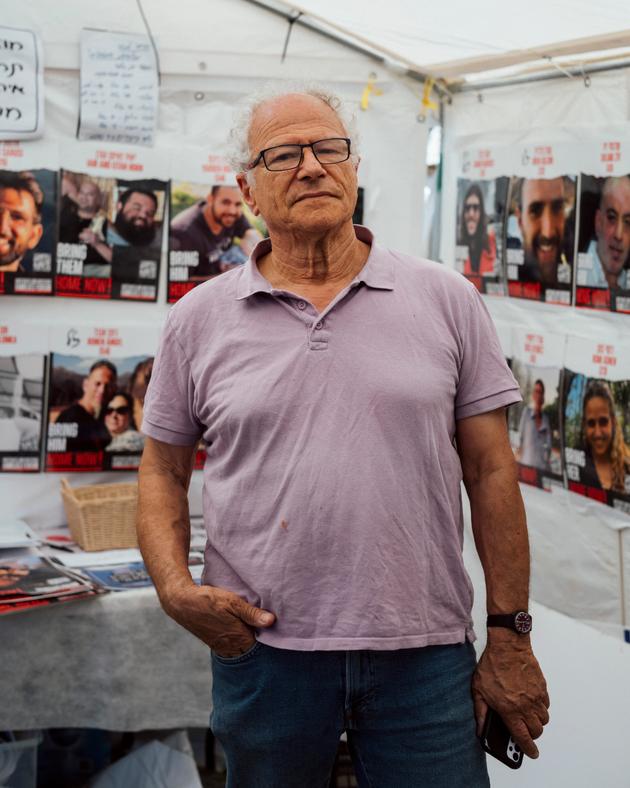


Israeli hostage families fear they are being forgotten
FeatureMore than six months after October 7, 130 people, mostly Israelis, are still being held by Hamas in the Gaza Strip. Negotiations for their release appear to be at a complete standstill, compounding a simmering political crisis.
On this Friday afternoon in April, in Jerusalem's Paris Square, the gathering place for the families of hostages held in Gaza, the sign that greets visitors set the tone: "Half a year of hell." That's how long it's been since the October 7 attack. The facial expressions here were somber, even distressed. Everyone felt deeply the absence of the hostages. The gathering, under the already warm spring sun, was like a wake. "The last few weeks have been difficult with the Iranian attack and Passover," explained Gaya Ilan, one of the organizers. "People are distracted. Families feel forgotten by the media and people's hearts. They're exhausted."

The location chosen for the protest, in front of Prime Minister Benjamin Netanyahu's residence, was significant. Not only had it been the site of demonstrations against the prime minister for the past five years, it was also where Gilad Shalit's family set up camp in 2010 to increase pressure on the government. The French-Israeli soldier, kidnapped in 2006, was released in 2011 in exchange for 1,027 Palestinian prisoners under a deal negotiated by Netanyahu, who was already in office at the time.
"After the individual initiative of Eli Stivi, father of one of the hostages, who spent a weekend in front of Netanyahu's residence in Caesarea [on the Mediterranean coast], we wanted to continue staying in front of his house in Jerusalem, and set up a tent on January 21," explained Zohar Avigdori, whose nephew and sister-in-law are among the Hamas captives freed in November. The Israeli prime minister had bluntly rejected a proposal from the Palestinian Islamist movement demanding a total withdrawal from the Gaza Strip in exchange for the hostages.
'Hostages must be saved at all costs'
"Time is running out for the hostages. For the first two months, protests were sporadic because everyone thought there would be an agreement. But the Israeli government and Hamas are showing bad faith. The families came to the conclusion that they had to organize tougher demonstrations to put pressure on the government. This doesn't mean that Hamas is right. But the hostages must be saved at all costs," said Ilan Greilsammer, professor of political science and international relations at Bar-Ilan University, who attended the demonstration in support of the hostages.

Time is running out. The Islamist movement claims to hold only 40 living hostages who meet the criteria set by Israel for a ceasefire – women, including five female soldiers, children, the elderly and the sick. Israel has already announced the death of 36 of the 130 or so Hamas hostages. They were either killed during their capture on October 7, or they died at the hands of their captors or in Israeli bombardments. Three of them were shot by Israeli soldiers who mistook them for Palestinians. Several dozen others may have perished under the bombs, without Israel being able to ascertain this, and thus announce their deaths to their families. As for the male soldiers held by Hamas, the state rarely mentions their fate, and their families fear that they are already considered lost.
You have 58.51% of this article left to read. The rest is for subscribers only.
